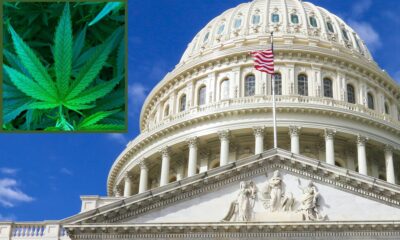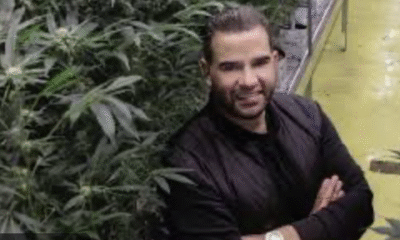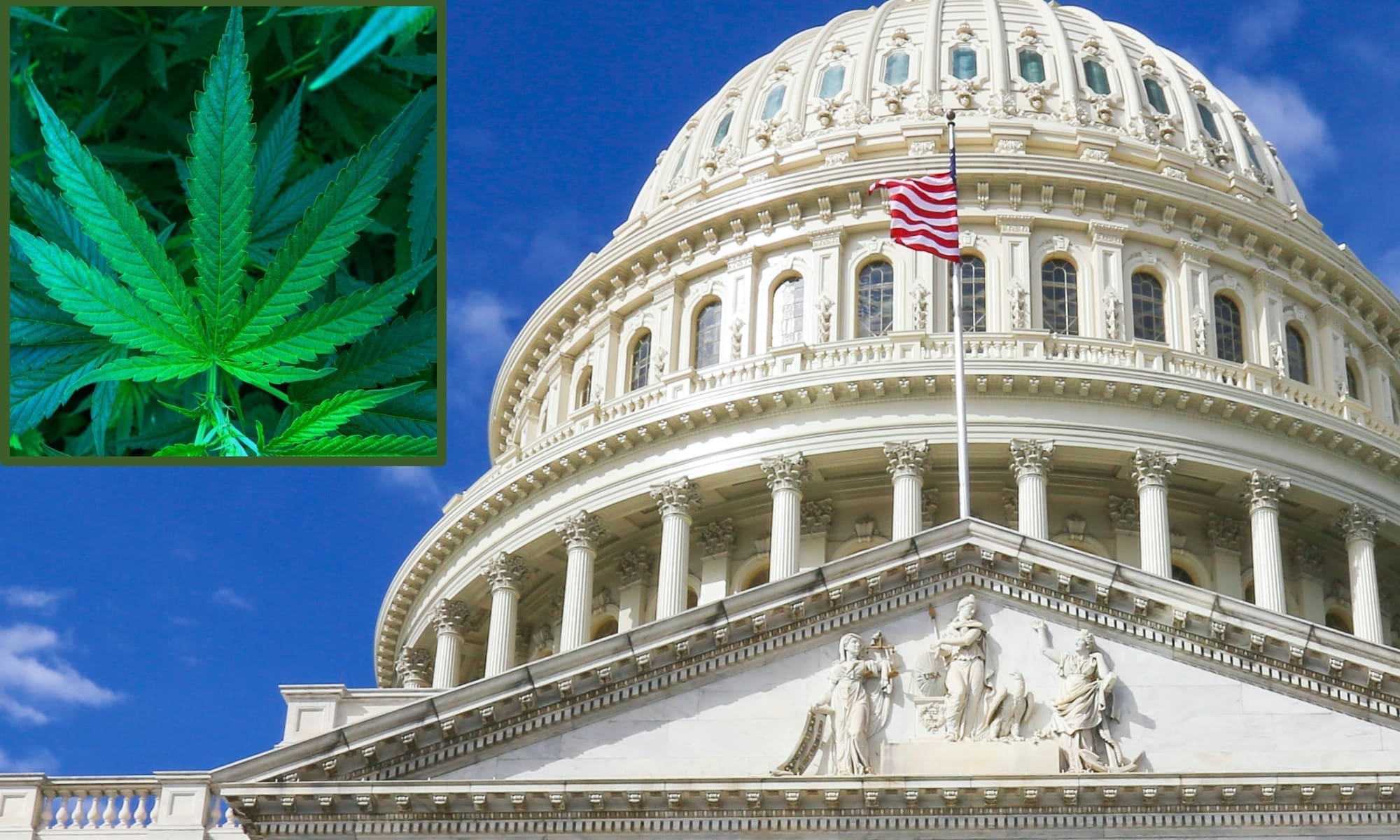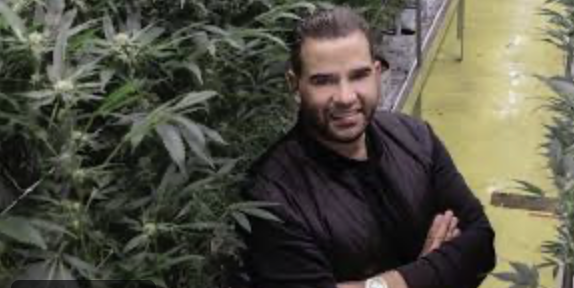featured
New York Should Legalize Psilocybin Therapy, Former Narcotics Prosecutor Says (Op-Ed)
Published
15 hours agoon
“This is more than a policy change. It’s the seed of a new paradigm: replacing fear with healing, stigma with science, punishment with care.”
By Victoria Cvitanovic, former narcotics prosecutor
Multiple bills to legalize psychedelic mushrooms for medical use have been introduced in New York and now they are finally gaining steam.
If passed, this legislation would allow healthcare professionals to guide patients in supervised settings, extend legal protections to providers and participants and allocate grants to expand access to financially vulnerable communities. This is more than a policy change. It’s the seed of a new paradigm: replacing fear with healing, stigma with science, punishment with care.
My own path towards becoming a psilocybin advocate was neither direct nor predictable.
I began my career as a narcotics prosecutor in New Orleans, seeing firsthand how drug laws criminalize people in pain rather than supporting them. But everything changed after a freak injury. While performing aerial silks, I broke my back and my life unraveled. I sank into chronic pain, depression and despair. Treatments failed. The medications dulled but didn’t heal.
Then one day, a client who was a psychedelic-assisted therapist made an offer. That moment became a wake-up call. I realized I didn’t have to suffer.
That shift turned everything. I underwent ketamine-assisted therapy, and gradually my worldview—and professional life—transformed. I embraced the role of a disability rights advocate and a legal counselor in plant and psychedelic medicine. I now see my life’s work as standing between people and a system that too often denies them medicine or criminalizes their seeking it.
The science on psilocybin therapy is no longer fringe. Rigorous clinical trials have documented durable responses in patients with treatment-resistant depression, PTSD, existential distress, and addiction. What we need isn’t speculation, it’s regulated access to implement it.
The proposed bill embeds critical safeguards: facilitator training and certification, patient screening, cultivation standards, data reporting and ongoing oversight. These guardrails won’t stifle access; they will ensure safety, integrity and credibility.
Yet legal frameworks are not enough without equity. The disability community is the only one anyone can join in an instant. Healing cannot be reserved for the privileged few. Psilocybin treatment isn’t a “tech-bro” trend. That’s why the bill’s grant program matters, why supporting underserved communities, veterans and first responders is critical.
Legalization means nothing if only those with means can access treatment.
We already live in a moment where stigma around psychedelics is being challenged, but change is slow. Even after openly talking about professional and guided psychedelic therapy in interviews, I’ve felt pushback, been asked during job interviews whether what I do is “evil” and worried about reputational fallout.
That fear is exactly why more voices like mine must speak. We need practitioners, patients, lawmakers and the public to engage in serious, compassionate conversations about healing, suffering and justice.
New York now has the chance to lead. It would become the fourth state to create a pathway for people to receive this treatment. Passing this bill would transform psilocybin therapy from illegal experiment into accessible, evidence-based treatment, one rooted in compassion, rigorous regulation and social equity.
Let this be our moment to put science, dignity, and healing at the forefront of policy.
Victoria Cvitanovic is a former narcotics prosecutor in Orleans Parish, Louisina, and now serves as a psychedelic medicine and cannabis attorney at Rudick Law Group, PLLC.

Author: mscannabiz.com
MScannaBIZ for all you Mississippi Cannabis News and Information.
You may like
-


‘Rent-a-License’ Scheme Highlights New York Cannabis’s Track-and-Trace Problem
-


Alcohol Industry Steps Up Lobbying On Hemp Drinks As Congress Debates THC Ban
-


Cannabis Mogul Appointed Ambassador To Middle East Country
-


Pennsylvania Senators Approve Bipartisan Cannabis Bill To Create New Regulatory Body
-


Ahead Of New Jersey Governor Election, GOP Candidate’s Comments On Marijuana As A ‘Gateway Drug’ Resurface
-


Urgent Action Needed To End US Marijuana Arrests
featured
‘Rent-a-License’ Scheme Highlights New York Cannabis’s Track-and-Trace Problem
Published
13 minutes agoon
October 21, 2025
New York cannabis regulators are attempting to oust a licensed operator from the adult-use marketplace whom they’re accusing of “aiding and abetting” in unlicensed processing activity through a reverse licensing scheme.
The state’s Office of Cannabis Management (OCM) filed multiple charges Oct. 20 against Omnium Health Inc. (d/b/a Omnium Canna), a licensed adult-use processor and distributor in Long Island.
The OCM claims that a February 2025 investigation uncovered contracts between Omnium and unlicensed operators whom Omnium charged rent, allowing them to use its facilities and resources to manufacture and package cannabis products that landed on licensed dispensary shelves as part of a “rent-a-license” scheme.
“Omnium’s alleged conduct is a blatant breach of the licensing rules designed to ensure transparency and fairness in the legal market,” OCM Executive Deputy Director Felicia A. B. Reid said in an Oct. 20 press release. “Our state’s cannabis laws are clear: Licenses are not transferable and only licensed operators may produce and distribute cannabis. OCM’s move today ensures that regulated businesses do not exploit loopholes or take advantage to undermine legal operators who play by the rules.”
In filing a notice of pleading, OCM is attempting to revoke Omnium’s licenses and prevent the company from applying for future licensure.
The state’s regulators are also seeking civil penalties related to the projected revenue from the sale or possession of any unregulated cannabis products, as well as the recall and destruction of those unregulated products.
“Omnium’s actions violated core principles of our regulatory framework and placed unvetted operators into the heart of New York’s legal market,” said Stephen Geskey, OCM deputy executive director of labs, compliance and licensing. “This is a textbook example of reverse licensure, and OCM will not tolerate it.”
The possibilities of “reverse licensure” in New York’s adult-use cannabis market are exacerbated by the state’s delay in implementing a third-party seed-to-sale tracking system nearly three years after adult-use dispensary sales launched in December 2022.
The OCM plans to integrate track-and-trace provider Metrc’s software and technology into the state’s adult-use program by Dec. 17 for all licensees. Access to Metrc’s application programming interference (API) and testing endpoints will be available on Oct. 12 for operators to begin the transition.
The majority of state cannabis programs have a third-party provider, like Metrc or BioTrack, to help prevent product diversion or inversion. Without a system in place, former New York Cannabis Control Board Member Jennifer Gilbert-Jenkins called product inversion the state’s “dirty secret” during a December 2024 board meeting.
“How are we validating that the products in stores are actually coming from New York State?” she questioned. “Because the rate of inversion in this market is the dirty secret that everybody is talking about … that the amount of product that’s coming into our legal, authorized dispensaries from out of state is displacing New York product.”
In February 2025, the OCM launched a Trade Practices Bureau dedicated to safeguarding the integrity of the state’s cannabis program through investigating violations, abuse and noncompliance to hold “bad actors” accountable.
In seeking revocation, debarment and monetary penalties against Omnium in this week’s announcement, the OCM also ordered a statewide retail recall of Omnium-linked products. In Monday’s release, the OCM included a photo of a product’s packaging labeled “Omnium d/b/a MFused.” OCM investigators concluded that MFused rented Omnium’s premises and license.
In covering the OCM’s investigation, The New York Times reported that not only is Mfused connected to Omnium, but so too are popular brands Stiiizy and Grön. The article states that Grön continues to rent space in Omnium facilities and draws attention to another article that details Grön’s business partnerships with licensees in other states.
Grön, which has a Type 2 processing license in New York, called the NYT’s article “inaccurate” in a company statement provided to Cannabis Business Times:
“We are disheartened and disappointed with the inaccurate reporting done by the New York Times today in an article that misrepresents our relationships, business practices and general code of conduct in New York. The article, about challenges facing a former partner of ours in New York State, suggests that Grön – a company with an unparalleled reputation in the cannabis industry for transparency and compliance, which are core values of our business – participated in improper licensing and manufacturing in New York State. These claims are entirely false, and we implore the New York Times to review this matter and issue a correction at once.”
An edibles brand from Oregon, Grön contests that it operates in a building completely independent of Omnium under full compliance with the OCM.
“Our relationship with Omnium was short, and during that time, Grön operated in total compliance with OCM’s regulations, which expressly permit out-of-state brands to partner with existing New York processing licensees, proving there is zero merit to any story of questionable material being used,” according to the company statement.
In February, the OCM’s newly launched Trade Practices Bureau (TPB) examined Omnium’s audit and inspection records, reviewed contracts between the company and other businesses, and interviewed several witnesses, according to the OCM.
In Monday’s notice of pleading, the OCM also accused Omnium of material misrepresentation and failing to disclose substantial changes to its business operations.
“Reverse licensing has no place in New York’s market,” TPB Director James Rogers said. “This kind of cheating robs compliant businesses of their right to compete in a fair market. Acting Executive Director Reid set up the bureau to address these kinds of threats to market integrity. The TPB team is grateful to all the individuals who came forward with crucial information and encourage others to do the same. If we work together, we can keep New York’s cannabis market above board.”

Author: mscannabiz.com
MScannaBIZ for all you Mississippi Cannabis News and Information.
featured
Alcohol Industry Steps Up Lobbying On Hemp Drinks As Congress Debates THC Ban
Published
1 hour agoon
October 21, 2025
The last three months have seen a surge in congressional lobbying from major alcohol companies and associations aiming to influence federal hemp laws, with a focus on THC beverages that many consumers are turning to as beer and liquor alternatives.
According to newly published lobbying disclosures from the 3rd quarter of 2025, a wide range of cannabis and alcohol interests put dollars toward various legislative issues, including marijuana banking, rescheduling, legalization and hemp regulations.
But there was an especially notable amount of lobbying activity around hemp THC beverages as Congress and state legislatures across the country discuss policy options for intoxicating cannabinoid products—with some pushing for an outright ban and others promoting a more rigorous regulatory framework that prioritizes public health and deterring youth access.
While it’s not unusual for alcohol interests to be among those disclosing lobbying around cannabis legislation, this latest quarter saw major brands such as Bacardi North America and Moet Hennessy USA join the action.
The summaries of their lobbying focus disclosed in the reports don’t specify their intent—or the amount of time, money and energy spent on this issue as opposed to others of concern—but the alcohol industry has shown increased interest in being part of the conversation around cannabis laws as they’ve seen more consumers gravitate toward marijuana and hemp instead of booze.
Beyond marijuana and alcohol industry stakeholders, the filings also reveal lobbying spending on cannabis issues from advocacy groups, government entities, non-cannabis corporations, financial institutions are more.
Some of the most notable players weighing in with Congress on cannabis issues last quarter include the office of Colorado Gov. Jared Polis (D), Altria, Molson Coors, PayPal, DoorDash and the American Civil Liberties Union.
Here’s a look at some of the key interests that lobbied on cannabis policy last quarter:
Alcohol industry
- Altria Client Services LLC: Discussions related to FDA Tobacco and Cannabis Product Enforcement Policy.
- Anheuser-Busch Companies: Differentiation of beer from cannabis and hemp in tax and regulation; Differentiate beer from hemp
- Bacardi North America: Regulation of hemp-derived THC products generally.
- Beer Institute: Issues related to intoxicating hemp; Issues related to the regulation of Hemp.
- Diaegeo North America: Definition of industrial hemp and legalization contained in 2018 Farm Bill Reauthorization (Pub. L. No. 115-334).
- Distilled Spirits Council: Policies impacting treatment of hemp derived products
- Moet Hennessy USA: beverage regulations pertaining to intoxicating hemp.
- Molson Coors Beverage Company USA LLC: General Education on Regulation of Intoxicating Hemp Beverages
- National Beer Wholesalers Association: Issues related to legal banking and effective regulation for cannabis products; Issues related to the legal status and regulation of cannabis, including industrial hemp and its derivative products; Issues related to the U.S. Food and Drug Administration (FDA) and the regulatory oversight of cannabidiol (CBD) products; S. 2113 – the HEMP Act – monitor status of legislation
- Wine and Spirits Wholesalers of America, Inc.: Intoxicating Hemp/ cannabis Policy Issues
- Wine Institute: Cannabis and Hemp Oversight Proposals
Government entities
- Colorado Gov. Jared Polis’s (D) office: cannabis rescheduling
- National Association of State Treasurers: banking issues related to marijuana policies.
Non-cannabis corporations and associations
- PayPal, Inc.: Issues related to cannabis banking, SAFE Banking Act
- DoorDash, Inc: Matters related to general hemp issues
- Convenience Distribution Association: Hemp related issues
- American Civil Liberties Union: H.R. 5068-MORE Act-Issues Lobbied: Marijuana Decriminalization; Cannabis Administration and Opportunity Act and Marijuana Opportunity Reinvestment and Expungement Act – marijuana decriminalization
- National Association of Criminal Defense Lawyers: Marijuana Opportunity Reinvestment and Expungement (MORE) Act (H.R. 5068)
- American Council of Life Insurers: H.R.__/S. __ SAFE Banking Act – This bill would create protections for financial institutions that provide financial services to State-sanctioned marijuana businesses and service providers for such businesses. Issue: Cannabis legislation; S. __ – SAFER Banking Act – This bill would create protections for financial institutions that provide financial services to State-sanctioned marijuana businesses and service providers for such businesses. Issue: Cannabis legislation.
- American Property Casualty Insurance Association: Marijuana Impairment Standard; Marijuana Research
- Associated General Contractors of America: Marijuana use and protections for workplace safety and health
- American Trucking Associations: DEA proposal for the reclassification of marijuana from a Schedule I to Schedule III substance under the Controlled Substance Act.
- Credit Union National Association, Inc.: Issues related to marijuana banking
- Community Bankers Association of Illinois: Federal Safe Harbor for Banking Cannabis-Related Businesses; Without taking a position on the legalization of cannabis, CBAI supports a federal safe harbor from sanctions for financial institutions that choose to serve legally compliant cannabis-related businesses (CRBs) and ancillary businesses that have commercial relationships with CBRs, in states where cannabis is legal. Allowing these businesses access to the traditional banking system and its services, versus operating exclusively in cash, is a public safety issue.
- Michigan Credit Union League: While MCUL takes no position on the issue of cannabis legalization, it supports the introduction and passage of legislation that would provide a safe harbor for financial institutions to serve their members needs in states where cannabis use has become legal.
- Real Estate Roundtable: Cannabis Issues, Safe Banking Act (H.R. 1595)
- Wholesale & Specialty Insurance Association: enactment of a safe harbor for insurers of state-legal cannabis businesses; Issues related to establishing a safe harbor for insurance companies to provide services to state-legal cannabis operations
Cannabis companies and associations
- Coalition for Cannabis Policy, Education and Regulation (represented by former Rep. Greg Walden (R-OR): Issues pertaining to government-wide federal regulation of cannabis; H.R. 2934 STATES 2.0 Act
- National Cannabis Roundtable: S.2860 – The Secure and Fair Enforcement Regulation Banking Act (SAFER Banking Act).
- US Cannabis Council (represented by former Trump advisor Bryan Lanza): related to cannabis Industry
- American Trade Association for Cannabis and Hemp: Treatment of hemp-derived intoxicants as related to farm bill and appropriations packages.
- Hemp Beverage Alliance: Issues pertaining to the regulation of hemp products; Farm Bill; FY2026 Agriculture, Rural Development, Food and Drug Administration, and Related Agencies Appropriations Act (H.R.4121/S.2256).
- U.S. Hemp Roundtable: Issues related to regulation of Hemp products; Issues related to provisions in the annual appropriations process that regulate Hemp.
- Cresco Labs LLC: SAFER Banking, Banking Act, Section 2860, Issues related to cannabis laws and regulations.
- Curaleaf, Inc: Proposals to create protections for depository institutions that provide financial services to cannabis-related legitimate businesses and services for such businesses (SAFE Banking Act); Proposal to amend the Controlled Substances Act regarding marihuana, and other proposals and issues related to the legalization of cannabis; Tax issues relating to cannabis; Inclusion of cannabis employees in job reports.
- Jushi Holdings Inc.: Issues related to closing the 2018 Farm Bill hemp loophole; H.R. 4121 – Agriculture, Rural Development, Food and Drug Administration, and Related Agencies Appropriations Act, 2026; S. 2256 -Agriculture, Rural Development, Food and Drug Administration, and Related Agencies Appropriations Act, 2026; The include LAW The rescheduling of cannabis from Schedule I to Schedule III of the Controlled Substances Act.
- Trulieve Cannabis Corp.: Cannabis and cannabis related legislation, including SAFER Banking Act; Provide strategic counsel and advocate on issues regarding banking policy and regulation; medical marijuana policy and regulation
- Verano Holdings, LLC: Controlled Substances Act; cannabis rescheduling; SAFE Banking Act; 280E taxation; Provide strategic counsel and advocate on issues related to SAFE Banking Act, other related tax issues, and cannabis rescheduling
Prohibitionists
- Smart Approaches to Marijuana: The federal government’s role in enforcing marijuana laws, the legalization of marijuana; Closing the loophole for hemp Delta-8
- SAM Action, Inc.: Advocating for a prohibition on hemp-derived intoxicants; Advocating against CCP-operating marijuana farms; Lobbying activities related to appropriations items including blocking marijuana rescheduling (CJS), creating an exception to the Rohrabacher-Farr Amendment to allow the Department of Justice to enforce USC 860 (CJS), getting an investigation of the HHS marijuana rescheduling review (Ag/FDA and LHHS), recommending more research on high-potency marijuana (Ag/FDA and LHHS), preventing the advocation of illegal drug use in anti-impaired driving advertisements, encouraging federal action against false therapeutic claims made about marijuana, and prohibiting hemp intoxicants in in the Agriculture Appropriations bill; Lobbying related to support for the No Deductions for Marijuana Businesses Act (S.471/H.R.1447)
Miscellaneous
- University of Mississippi: federal regulation of cannabis research
So far in 2025—despite the lobbying efforts that went into advancing cannabis issues on Capitol Hill—there’s been limited return on investment.
While congressional lawmakers have said they want to see a bipartisan marijuana banking bill pass this year, and President Donald Trump said in late August that a decision on rescheduling was imminent, those reforms have not come to fruition.
As far as hemp is concerned, the House and Senate have taken different approaches in their respective appropriations legislation, with the former advancing a bill that would ban hemp products containing any amount of THC and the latter omitting such language.

Author: mscannabiz.com
MScannaBIZ for all you Mississippi Cannabis News and Information.
featured
Cannabis Mogul Appointed Ambassador To Middle East Country
Published
2 hours agoon
October 21, 2025
Washington surprised as cannabis mogul appointed ambassador to Middle East Country amid tension
Considering the delay in rescheduling, it is a bit of surprising and positive news a cannabis mogul appointed ambassador to Middle East country. yes, Mark Savaya, a Michigan businessman best known for his Leaf & Bud marijuana dispensary chain and ubiquitous billboards around Detroit, may become the new special envoy to the Republic of Iraq. The pick, announced on Trump’s Truth Social, landed like a Twitter storm: part hometown booster move, part political reward, and part diplomatic wildcard.
RELATED: Zohram Mamdani And NYC’s Legal Marijuana
Savaya’s rise is the kind of American-story headline editors love. An Iraqi-born Chaldean who built a visible cannabis brand in Metro Detroit, he became a local celebrity for aggressive billboard marketing and a social-media presence pushing his products — and his persona — into the public eye. His Leaf & Bud outlets and “Mark Savaya Collection” branding have been the subject of local debate and municipal attention.

The background matters for two reasons. First, Savaya has been politically active in Michigan and a visible backer of the current presideent’s campaign efforts in the state — a factor the White House explicitly referenced when explaining the appointment. Second, his cannabis ties present an awkward optics clash: the U.S. appointee’s business is legal under Michigan state law but remains illegal under federal law, while Iraq enforces some of the region’s toughest drug penalties.
Why Iraq makes this appointment a high-stakes headline: U.S.–Iraq ties are layered and fragile. The role of a special envoy historically carries weight — envoys have been central to reconstruction, counterterrorism coordination and high-stakes diplomacy since 2003 — and Baghdad’s politics are a mosaic of sectarian factions, foreign influences, and security challenges. The choice of a non-career political appointee with no formal diplomatic resume has prompted questions in both Baghdad and Washington about what the administration expects Savaya to accomplish.
And then there’s the cannabis angle. Iraq’s law is unforgiving: recreational and medical cannabis are illegal, and penalties for possession, trafficking and cultivation can be severe under Iraqi statutes and long-standing narcotics laws. That stark legal contrast — an American envoy whose public brand is tied to cannabis, representing U.S. interests in a country who criminalizes it — is likely to be raised in Baghdad’s briefings and in public reaction.
RELATED: The Rise Of The Zillennial
What to watch next: how Baghdad and Baghdad’s partners (including the Kurdistan Regional Government) publicly receive Savaya; whether his appointment is purely symbolic outreach to Iraqi-American communities and voters in Michigan, or whether he’ll be given a clear, policy-driven brief; and how the White House manages the optics of a cannabis entrepreneur handling sensitive Middle East diplomacy. For young readers and beat-followers, this is less a culture-war curiosity and more a case study in modern patronage diplomacy — where brand, social capital, and partisan loyalty can land you in a geopolitically delicate job.
The appointment is real, it’s provocative, and it underscores how unconventional pathways to influence are reshaping U.S. diplomacy — for better or worse — at a moment when Iraq’s stability and the U.S. role there remain anything but settled.

Author: mscannabiz.com
MScannaBIZ for all you Mississippi Cannabis News and Information.

‘Rent-a-License’ Scheme Highlights New York Cannabis’s Track-and-Trace Problem

Alcohol Industry Steps Up Lobbying On Hemp Drinks As Congress Debates THC Ban

Cannabis Mogul Appointed Ambassador To Middle East Country

Pennsylvania Senators Approve Bipartisan Cannabis Bill To Create New Regulatory Body

Ahead Of New Jersey Governor Election, GOP Candidate’s Comments On Marijuana As A ‘Gateway Drug’ Resurface

Urgent Action Needed To End US Marijuana Arrests

Supreme Court takes up cannabis & gun rights case (Newsletter: October 21, 2025)

What Winning Looks Like: The New Jersey Dispensaries Playing a Different Game

Trump Taps Marijuana Industry ‘Visionary’ As Special Envoy To Iraq

Delaware Scam Claiming to Represent State-Licensed Dispensary Offering Illegal Cannabis Deliveries – Ganjapreneur
New York Should Legalize Psilocybin Therapy, Former Narcotics Prosecutor Says (Op-Ed)

Do Public Votes About Cannabis Matter Currently

Ohio Lawmakers Will Take Up Bill To Revise Voter-Approved Marijuana Law And Add Hemp Market Restrictions This Week

The Best Microdosing Strains For A Rough Week
Rubicon Organics Announces Health Canada Cultivation License For Cascadia Facility

Building Community, One Bagel at a Time

Supreme Court to Decide Whether Federal Gun Ban Applies to Cannabis Consumers

Florida Marijuana Legalization Campaign Sues State Over Alleged ‘Unlawful’ Attempt To Invalidate 200,000 Signatures For 2026 Ballot Initiative

Does Skateboarding Need To Level Up

Planet 13 Opens 34th Florida Dispensary in Pace

A Long Strange Trip: Yelawolf and Edward Crowe Bring Blotter Art to Life

La Crosse, WI Reduces Marijuana Possession Penalties to $1 Fine

Supreme Court Agrees To Hear Case On Gun Rights Of People Who Use Marijuana And Other Illegal Drugs

Massachusetts Ballot Campaign to End Adult-Use Cannabis Market ‘On Track’ to Collect Enough Signatures

Alert: Department of Cannabis Control updates data dashboards with full data for 2023

Connecticut Appoints The US’s First Cannabis Ombudsperson – Yes there is a pun in there and I’m Sure Erin Kirk Is Going To Hear It More Than Once!

5 best CBD creams of 2024 by Leafly

Recreational cannabis on ballot for third time in South Dakota

EU initiative begins bid to open access to psychedelic therapies
New Study Analyzes the Effects of THCV, CBD on Weight Loss

5 best autoflower seed banks of 2024 by Leafly

Free delta-9 gummies from Bay Smokes

Discover New York’s dankest cannabis brands [September 2024]

May 2024 Leafly HighLight: Pink Runtz strain

Press Release: CANNRA Calls for Farm Bill to Clarify Existing State Authority to Regulate Hemp Products

5 best THC drinks of 2024 by Leafly

Local medical cannabis dispensary reacts to MSDH pulling Rapid Analytics License – WLBT

6 best CBD gummies of 2024 by Leafly

Curaleaf Start Process Of Getting Their Claws Into The UK’s National Health System – With Former MP (Resigned Today 30/5/24) As The Front Man

Horn Lake denies cannabis dispensary request to allow sale of drug paraphernalia and Sunday sales | News

5 best delta-9 THC gummies of 2024 by Leafly

Mississippi city official pleads guilty to selling fake CBD products

The Daily Hit: October 2, 2024

Nevada CCB to Accept Applications for Cannabis Establishments in White Pine County – “Only one cultivation and one production license will be awarded in White Pine County”

5 best THCA flower of 2024 by Leafly

Weekly Update: Monday, May 13, 2024 including, New Guide for Renewals & May Board meeting application deadline

6 best hemp pre-rolls of 2024 by Leafly

PRESS RELEASE : Justice Department Submits Proposed Regulation to Reschedule Marijuana
Trending
-

 California Cannabis Updates1 year ago
California Cannabis Updates1 year agoAlert: Department of Cannabis Control updates data dashboards with full data for 2023
-

 Breaking News1 year ago
Breaking News1 year agoConnecticut Appoints The US’s First Cannabis Ombudsperson – Yes there is a pun in there and I’m Sure Erin Kirk Is Going To Hear It More Than Once!
-

 best list1 year ago
best list1 year ago5 best CBD creams of 2024 by Leafly
-

 Business1 year ago
Business1 year agoRecreational cannabis on ballot for third time in South Dakota
-

 Business1 year ago
Business1 year agoEU initiative begins bid to open access to psychedelic therapies
-

 cbd1 year ago
cbd1 year agoNew Study Analyzes the Effects of THCV, CBD on Weight Loss
-

 autoflower seeds1 year ago
autoflower seeds1 year ago5 best autoflower seed banks of 2024 by Leafly
-

 Bay Smokes1 year ago
Bay Smokes1 year agoFree delta-9 gummies from Bay Smokes



